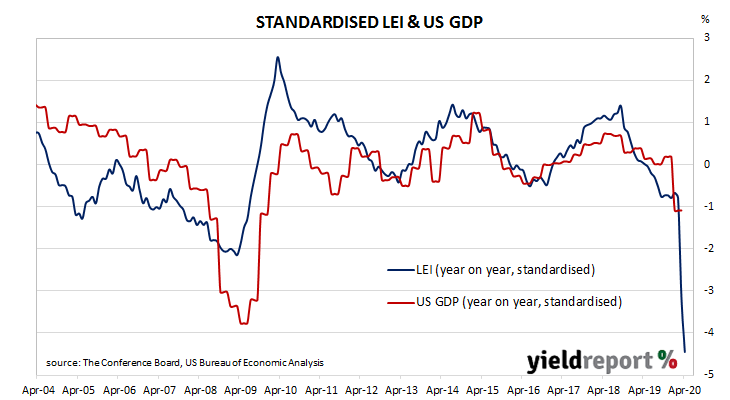Summary: US leading index falls markedly again; fall less than previous change; suggests US in recession; points to tough June & September quarters.
The Conference Board Leading Economic Index (LEI) is a composite index composed of ten sub-indices which are thought to be sensitive to changes in the US economy. The Conference Board describes it as an index which attempts to signal growth peaks and troughs; turning points in the index have historically occurred prior to changes in aggregate economic activity. The reading from March signalled “a deep US recession”; April’s reading has continued in that vein.
The latest reading of the LEI indicates it fell by 4.4% in April. The result was better than the 5.7% fall which had been expected and not as bad as March’s revised figure of -7.4% after it was revised down from -6.7%. On an annual basis, the LEI growth rate slowed from March’s revised figure of -7.5% to -11.7% in April.
“The sharp declines in the LEI and CEI suggest that the US economy is now in recession territory,” said Ataman Ozyildirim, Senior Director of Economic Research at The Conference Board. CEI refers to The Conference Board’s Coincident Economic Index which is a measure of current conditions.
Changes over time can be large but once they are standardised, a clearer relationship with GDP emerges. The latest reading implies a year-on-year growth rate of -2.3% at the beginning of the December 2020 quarter.

